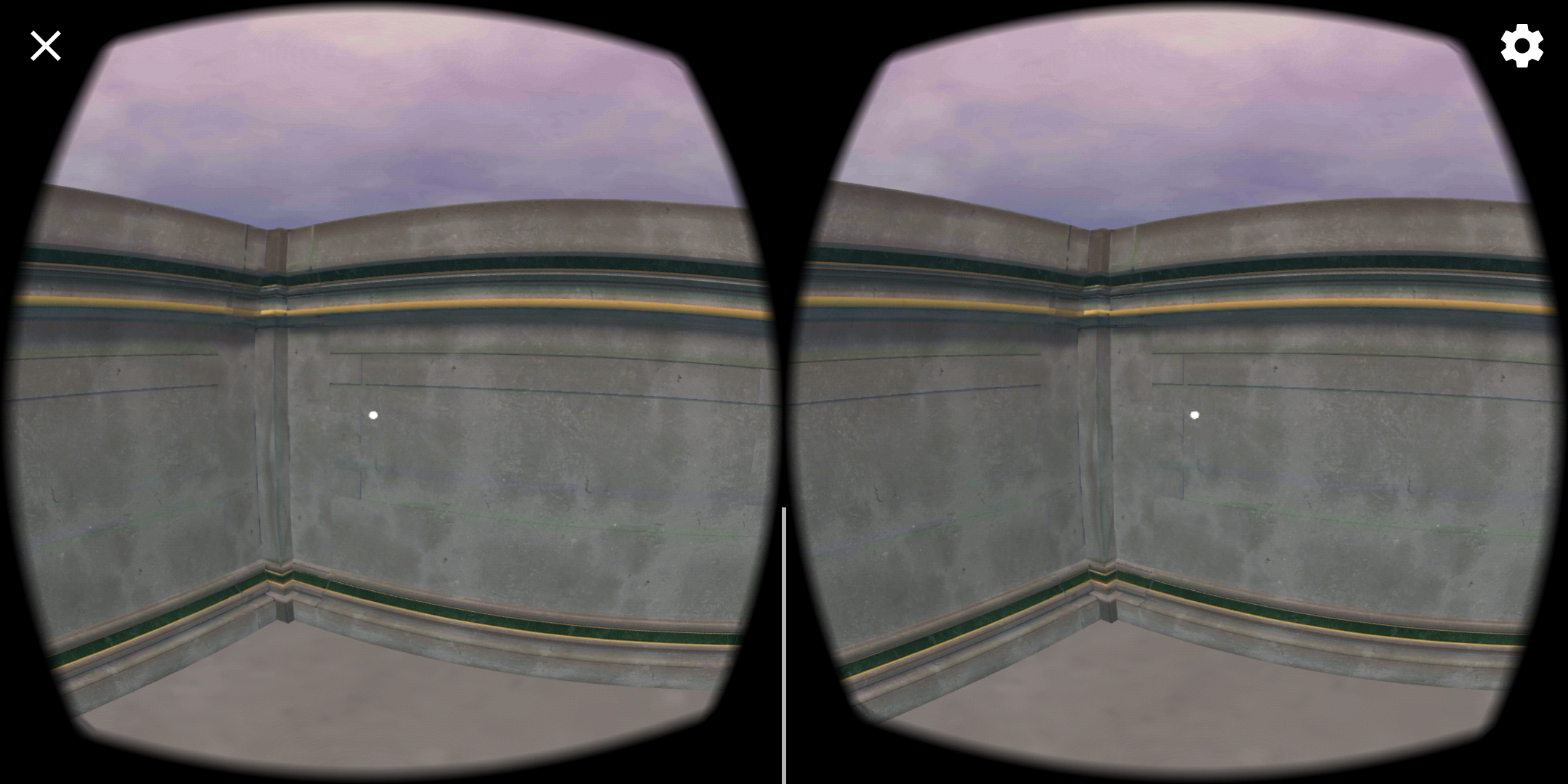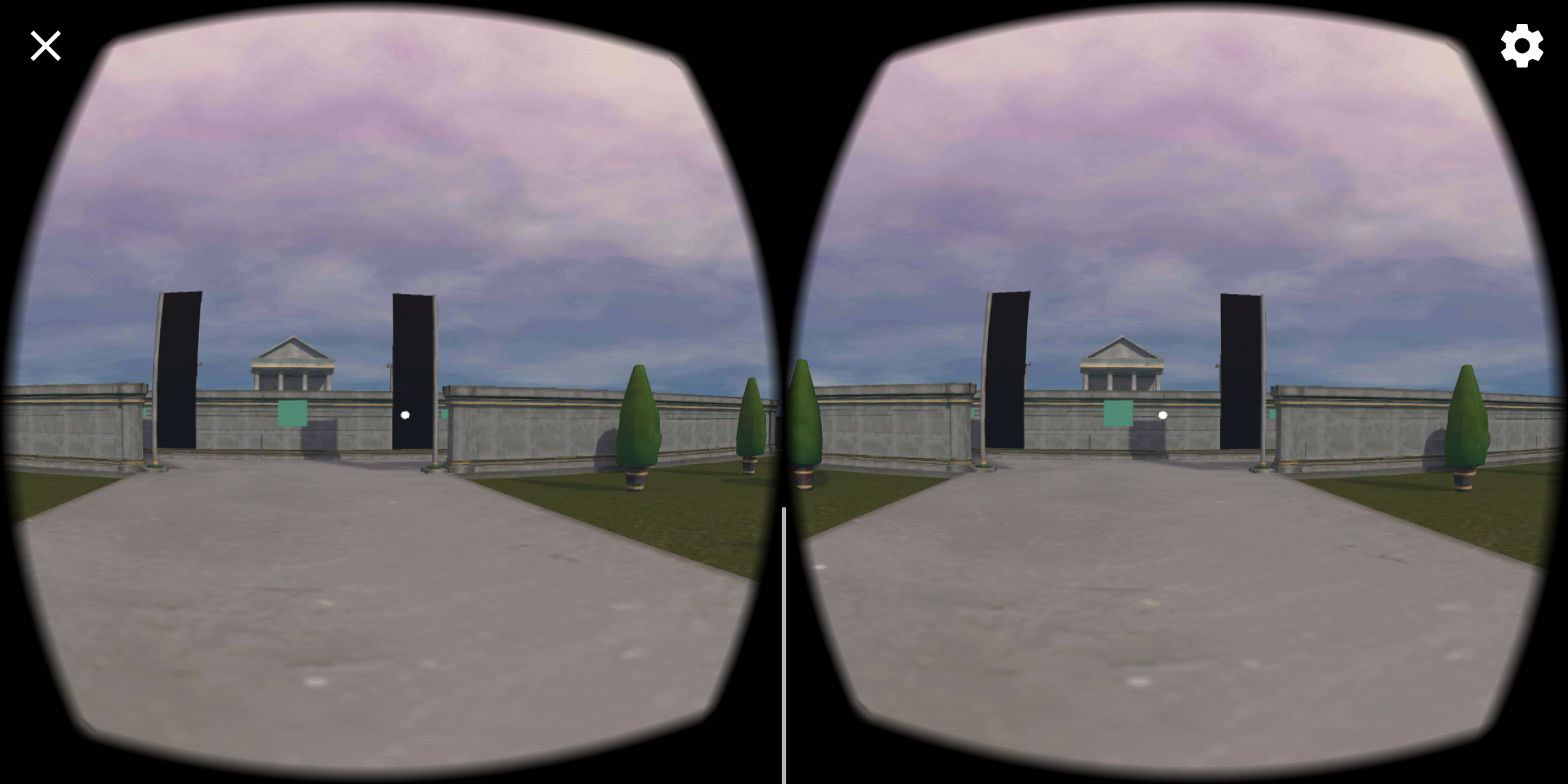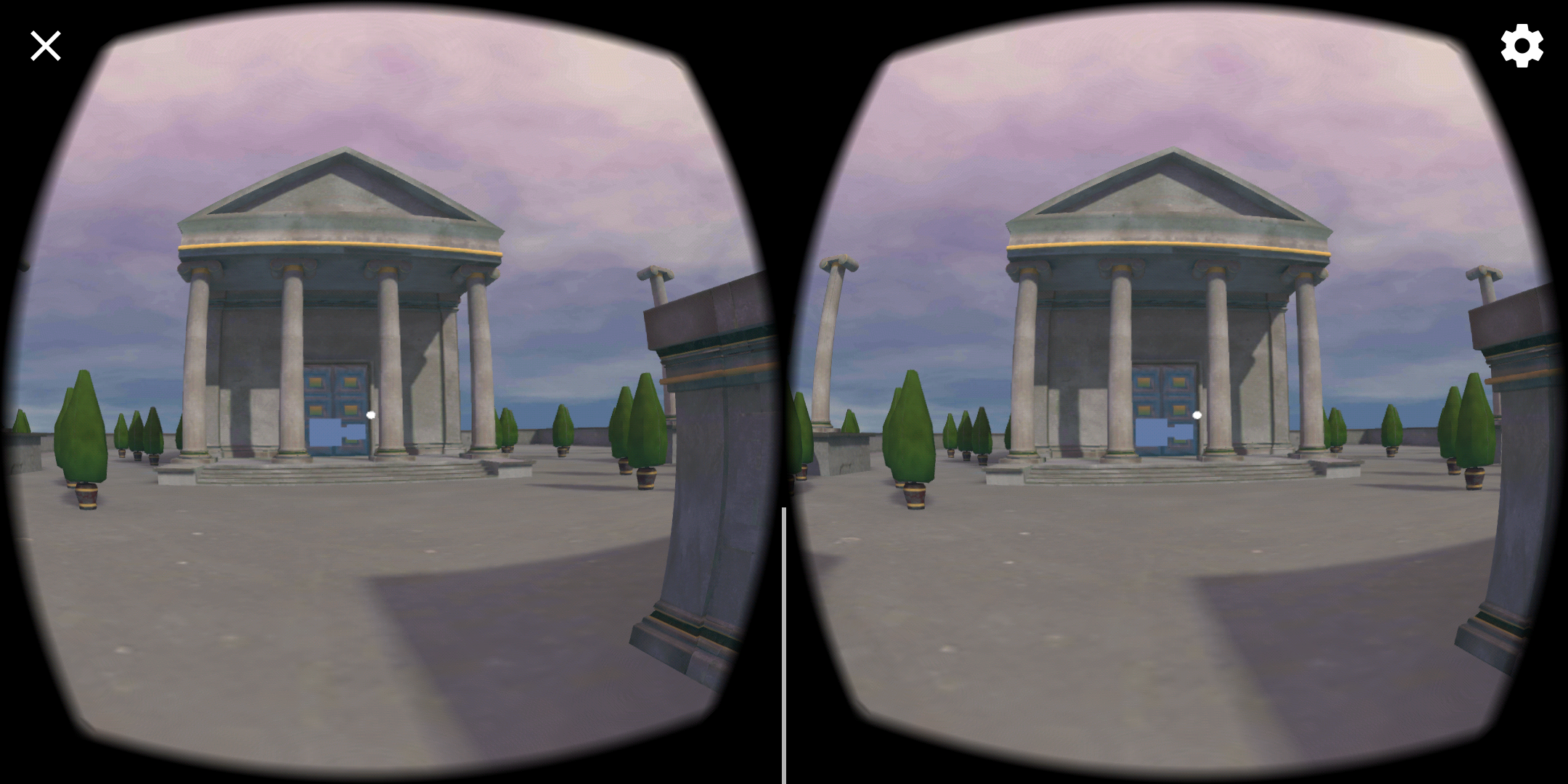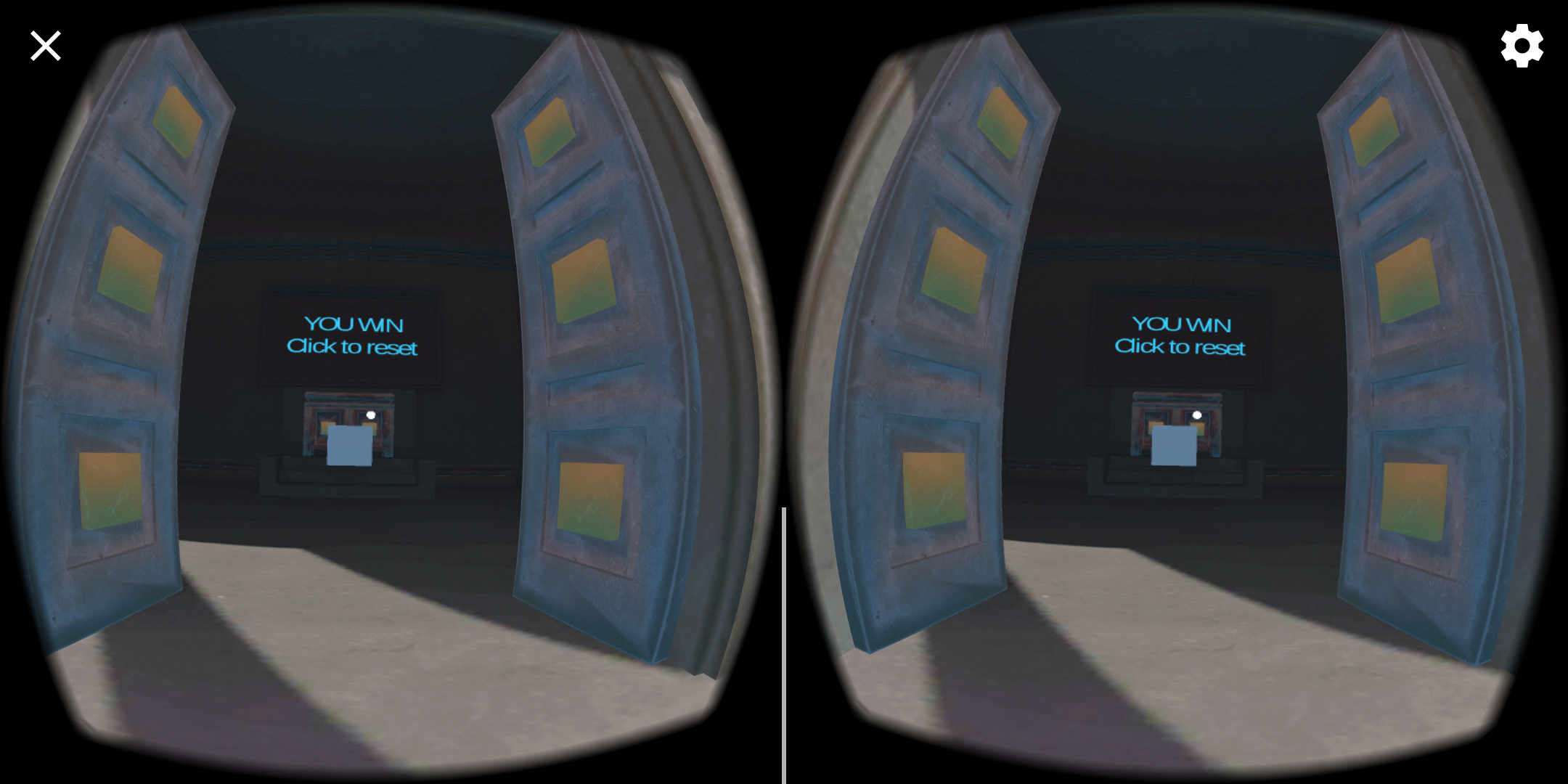Starter project for(now out of order) the Udacity VR Developer Nanodegree program.
- Course: VR Software Development
- Project: A Maze
This project is a virtual reality maze, you can move through the entire maze to any direction, if you find your way to the end a door will wait for you, and you win by going on the inside. There are collectibles around the map and you will need to get them, one of them is the key to your success.
The project was built and tested for/on an Android device
The included starter project represents a new Unity project where the following have been done:
- All assets needed to complete the project according to the project rubric have been imported.
- The imported models have been placed in the scene and organized in the scene hierarchy.
- Colliders have been added to the
Coin,Key,Left_Door,Right_Door, andThe_Templegame objects, and to theMazegame object's child game objects.
The starter scene is at A Maze/Assets/UdacityVR/Scenes/Main.unity
- VR Software Development - Creating Scripts
- VR Software Development - Controlling Objects Using Code
- VR Software Development - VR Interaction
- VR Software Development - Programming Animations
- VR Software Development - Physics and Audio
- VR Software Development - Advanced VR Scripting
- VR Software Development - A Maze
This scene got bigger than the previous project. The previous project could only have between 15 and 50 objects on the same scene but this one have much more than that, this concerns me about performance issues. Even though it ran fine on my mobile (Moto Z3 play), it took 40 minutes to 1 hour to bake the lighting on resolution set to 30(the previous one took about 5 minutes on 80 resolution). I also had problems to light the flag with baked lighting, only with real time, even unlit shader didn't work.
Also the models aren't much simetric, the walls all have the same size so you can kinda have a "grid" on it, but the pillar plus its fittings breaks this grid by adding a non fixed size, so I had to put more walls or re-scale some of them, so I have some clipping.
I'd like tips on how should I use those models to avoid this to happen, the overload of models making the bake take too long, and asymmetric models to avoid clipping.



